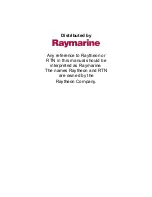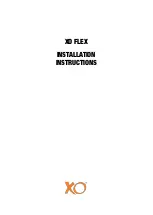
46
47
Rotors for fine seeds
The rotors for fine seeds consist of cell discs,
spacers and drive shaft.
In order to avoid malfunction when sowing fine
seed, the cell rotors are completely pre-assem-
bled at the factory.
The rotors can be assembled with one or two
cell discs.
The use of two cell discs on the rotor doubles
the delivery rate.
Cell discs are available with displacements of
3.5 cm³, 5 cm³, 10 cm³ and 25 cm³.
Only the cell discs in the rotor turn while sowing.
The spacers are blocked by stop positions on
the housing.
NOTE
On machines with double fall sluice and 2 seed
boxes you may only use rotors with 2 cell discs.
Otherwise the seed is unevenly distributed to
the two halves.
Removing or installing a fine seed
rotor
The anti-rotation locks must be turned towards
the recess in the housing when installing and
removing the rotors.
Assembly of rotor for fine seeds
Adjusting the sealing lip
NOTE
A defective sealing lip or incorrectly assembled
supporting plate cause metering errors during
sowing.
¾
The sealing lip must not be torn or dam
-
aged - replace the sealing lip at least 1 x
per year.
¾
Insert the side cover with the sealing lip into
the metering housing. The sealing lip must
have full contact with the rotor and should be
able to generate approx. 1 mm pre-tension.
approx. 1 mm
Sealing lip
The retaining plate for the sealing lip is asym-
metrically divided.
With all normal and
fine seeds the wider side
must face towards the rotor.
In case of faults with coarse seeds such as
maize, beans etc. both the retaining plate and
the sealing lip can be replaced by a wider design.
¾
Take out the rotor.
¾
Insert the side cover with the new sealing lip.
Tighten the sealing lip only far enough to still
allow it to slide.
¾
Move the lip so that it projects approx. 1 mm
into the rotor recess.
¾
Remove the side cover. Do not move the lip
any more and tighten it.
¾
Assemble the side cover, check the setting
once again and reinstall the rotor.
















































